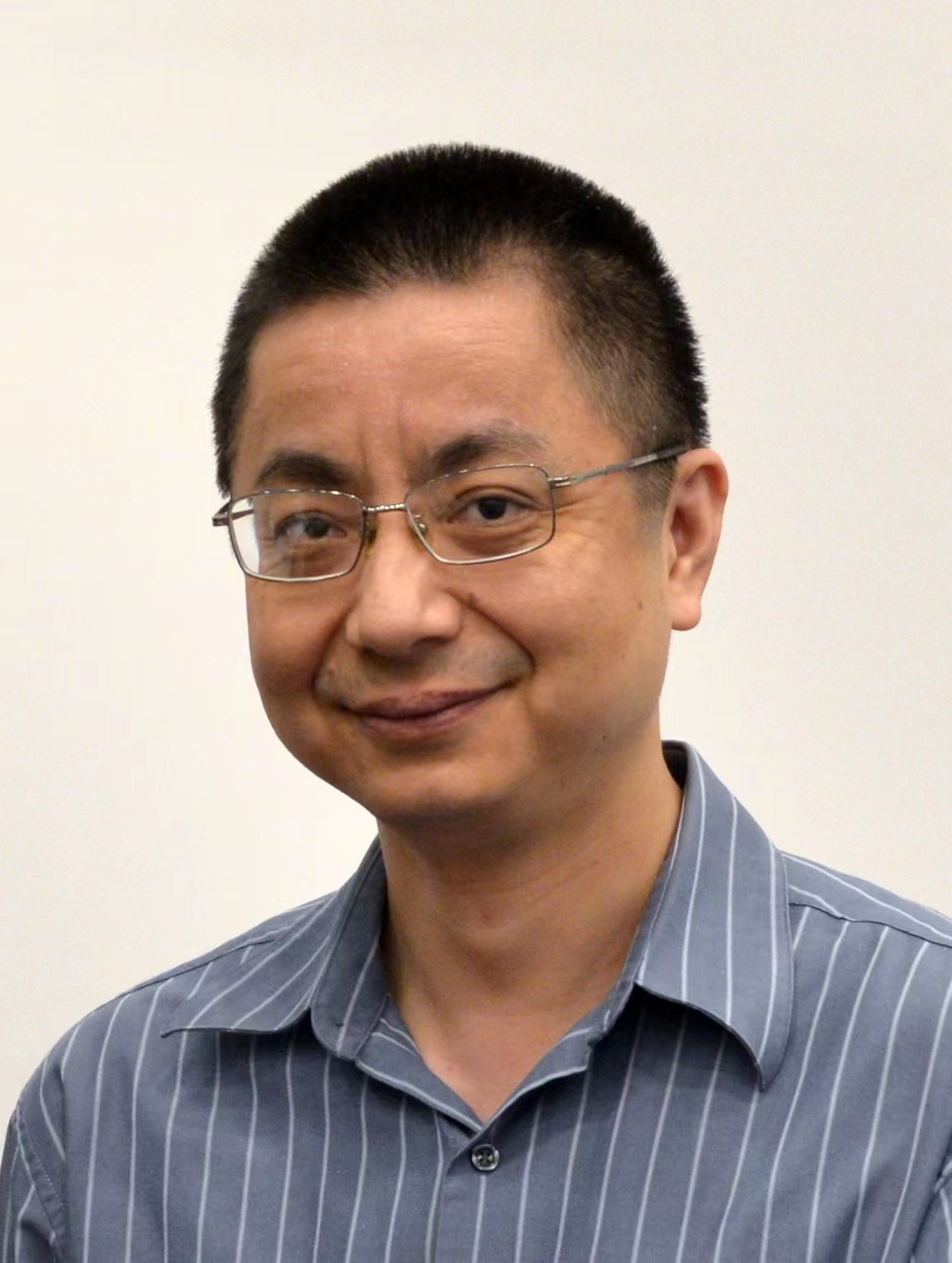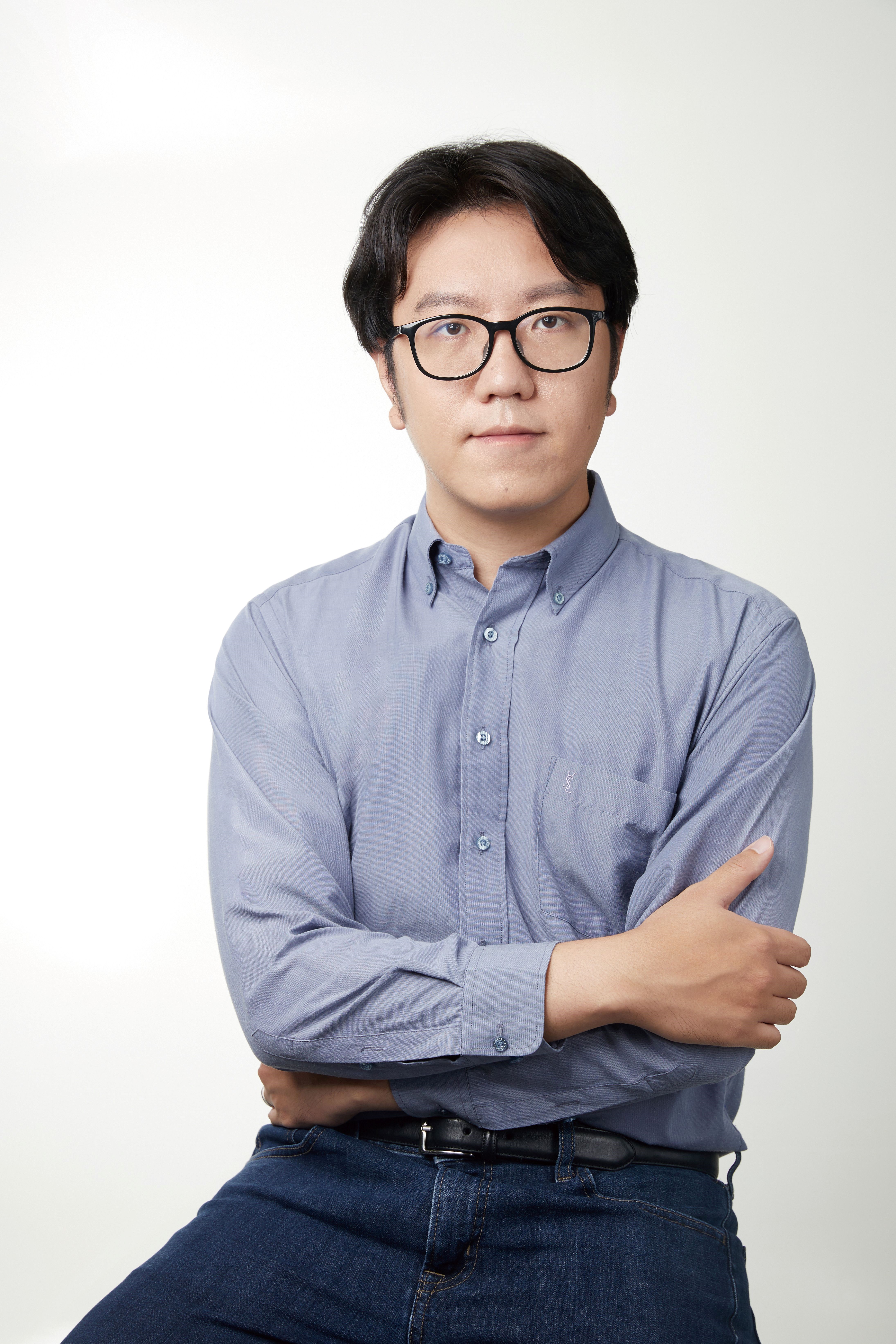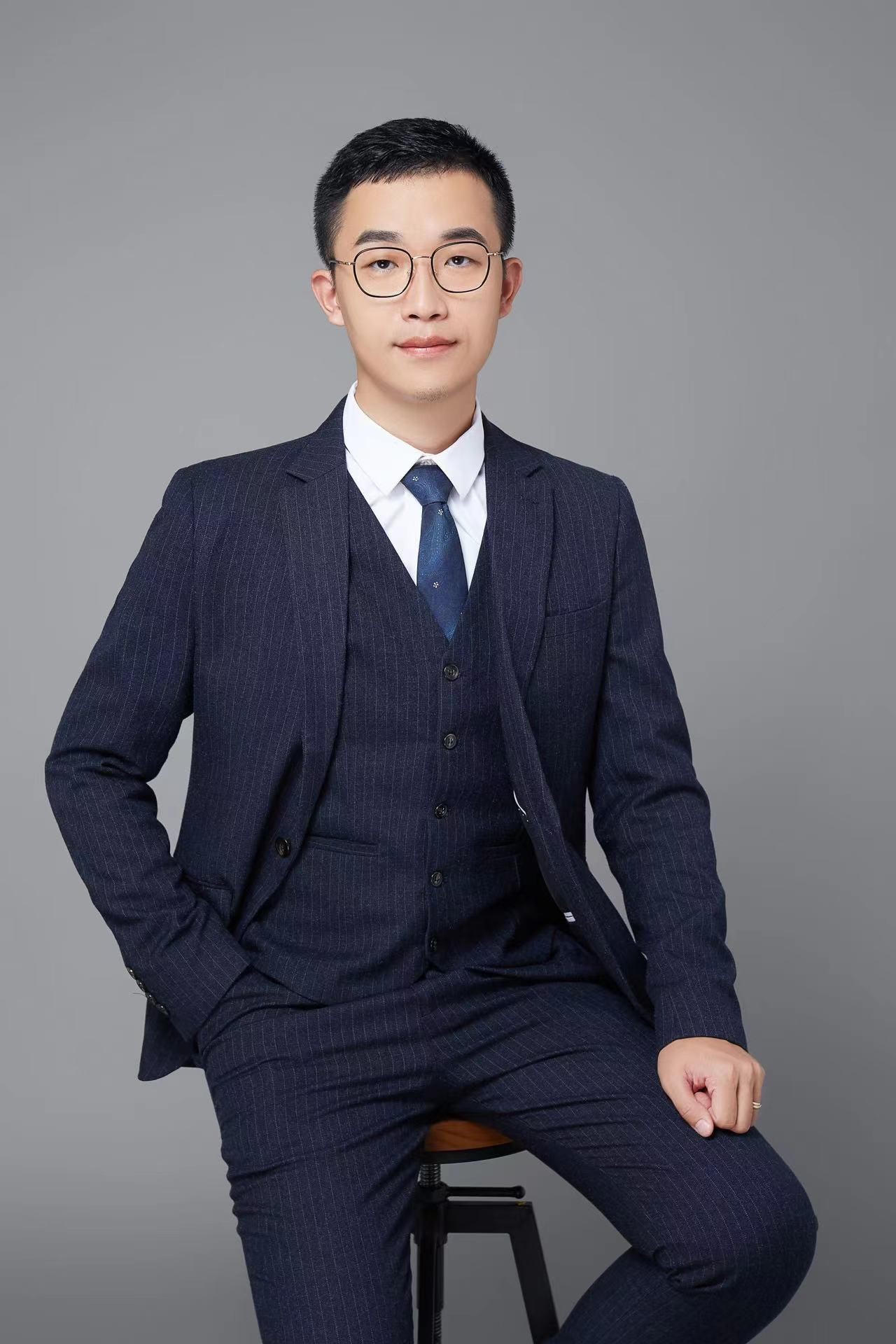Program
CVM 2023 Conference Program
| Thursday, April 6, 2023 | ||
| 08:30 - 18:00 | Registration | |
| 14:30 - 18:00 | Invited Frontiers Symposium | |
| Day One | Friday, April 7, 2023 | |
| 08:00 - 08:30 | Registration | |
| 08:30 - 08:50 | Opening Ceremony (Chair: Hui Huang) | |
| Keynote talk I (Chair: Hui Huang) | ||
| 08:50 - 09:30 | An Evolution of Learning Neural Implicit Representations for 3D Shapes Hao (Richard) Zhang (Simon Fraser University) |
|
| 09:30 - 10:00 | Group photo + Coffee break | |
| Session 1 | Geometry Processing (Chair: Chenlei Lv) | |
| 10:00 - 10:15 | Laplacian2Mesh: Laplacian-Based Mesh Understanding Qiujie Dong, Zixiong Wang, Manyi Li, Junjie Gao, Shuangmin Chen, Zhenyu Shu, Shiqing Xin, Changhe Tu |
|
| 10:15 - 10:30 | GBGVD: Growth Based Geodesic Voronoi Diagrams Yunjia Qi, Chen Zong, Shuangmin Chen, Minfeng Xu, Lingqiang Ran, Jian Xu, Shiqing Xin, Ying He |
|
| 10:30 - 10:45 | A Watertight Surface Reconstruction Method for CAD Models Based on Optimal Transport Yuanyan Ye, Yubo Wang, Juan Cao, Zhonggui Chen |
|
| 10:45 - 11:00 | Patching Non-Uniform Extraordinary Points Yi-Fei Feng, Li-Yong Shen, Xin Li, Chun-Ming Yuan, Xing Jiang |
|
| Session 2 | Geometric Learning (Chair: Pengfei Xu) | |
| 11:00 - 11:15 | Multi-scale Hash Encoding based Neural Geometry Representation Zhi Deng, Haiyao Xiao, Juyong Zhang |
|
| 11:15 - 11:30 | RFMNet: Robust Deep Functional Maps for Unsupervised Shape Correspondence Qinsong Li, Ling Hu, Shengjun Liu, Dong-Ming Yan, Haojun Xu, Xinru Liu |
|
| 11:30 - 11:45 | PuzzleNet: Boundary-Aware Feature Matching for Non-overlapping 3D Point Clouds Assembly Haoyu Liu, Jianwei Guo, Haiyong Jiang, Yanchao Liu, Xiaopeng Zhang, Dong-Ming Yan |
|
| 11:45 - 12:00 | MixNet: A Neural Network for Learning 3D Implicit Representations Bowen Lyu, Li-Yong Shen, Chun-Ming Yuan |
|
| 12:00 - 14:00 | Lunch | |
| Keynote talk II (Chair: Minglun Gong) | ||
| 14:00 - 14:40 | Measuring and Analyzing Collective Behavior Oliver Deussen (University of Konstanz) |
|
| Session 3 | Deformation & Animation (Chair: Jianwei Guo) | |
| 14:40 - 14:55 | CTSN: Predicting Cloth Deformation for Skeleton-based Characters with a Two-stream Skinning Network Yudi Li, Min Tang, Yun Yang, Ruofeng Tong, Dinesh Manocha |
|
| 14:55 - 15:10 | IMPLICITPCA: Implicitly-Proxied Parametric Encoding for Collision-Aware Garment Reconstruction Lan Chen, Jie Yang, Hongbo Fu, Xiaoxu Meng, Weikai Chen, Bo Yang, Lin Gao |
|
| 15:10 - 15:25 | GSNet: Generating 3D Garment Animation via Graph Skinning Network Tao Peng, Jiewen Kuang, Jinxing Liang, Xinrong Hu, Ping Zhu, Lijun Li, Feng Yu, Minghua Jiang |
|
| 15:25 - 15:40 | HMDO: Markerless Multi-view Hand Manipulation Capture with Deformable Objects Wei Xie, Zhipeng Yu, Zimeng Zhao, Binghui Zuo, Yangang Wang |
|
| 15:40 - 15:55 | Coffee break | |
| Session 4 | Face (Chair: Zihao Yan) | |
| 15:55 - 16:10 | DeepFaceReshaping: Interactive Deep Face Reshaping via Landmark Manipulation Shu-Yu Chen, Yue-Ren Jiang, Hongbo Fu, Xinyang Han, Zitao Liu, Rong Li, Lin Gao |
|
| 16:10 - 16:25 | Text2Face: Text-based Face Generation with Geometry and Appearance Control Zhaoyang Zhang, Junliang Chen, Hongbo Fu, Jianjun Zhao, Shu-Yu Chen, Lin Gao |
|
| 16:25 - 16:40 | MusicFace: Music-driven Expressive Singing Face Synthesis Pengfei Liu, Wenjin Deng, Hengda Li, Jintai Wang, Yinglin Zheng, Yiwei Ding, Xiaohu Guo, Ming Zeng |
|
| 16:40 - 16:55 | CF-DAN: Facial-Expression Recognition Based on Cross-Fusion Dual-Attention Network Fan Zhang, Gongguan Chen, Hua Wang, Caiming Zhang |
|
| Industrial Session (Chair: Ke Xie) | ||
| 16:55 - 17:30 | Next-Gen 3D Content Platform in XVERSE: Cloud-Edge Collaboration Rendering with AIGC
Haozhi Huang (XVERSE) MESHSEED: The Lightweight web based real-world 3D data display application platform Xiaoxing Zhang (Wuce Spatial) |
|
| Poster Session | ||
| 17:30 - 18:30 |
InstantTrace: Fast Parallel Neuron Tracing On GPU
Yuxuan Hou, Zhong Ren, Qiming Hou, Yubo Tao, Yankai Jiang, Wei Chen Modeling Multi-style Portrait Relief from a Single Photograph Yu-Wei Zhang, Hongguang Yang, Ping Luo, Zhi Li, Zhongping Ji, Hui Liu, Caiming Zhang CATDS: Cross Aggregation Transformer-based Dynamic Supplement Network for Underwater Image Enhancement Zhixiong Huang, Jinjiang Li, Zhen Hua, Linwei Fan Real-time High-Resolution Video Object Segmentation Duolin Wang, Yadang Chen, Zhi-Xin Yang, Enhua Wu Neural Style Transfer for 3D Meshes Hongyuan Kang, Xiao Dong, Juan Cao, Zhonggui Chen Region-Aware Diffusion for Zero-shot Text-driven Image Editing Nisha Huang, Fan Tang, Weiming Dong, Changsheng Xu, Tong-Yee Lee Algebraic Adaptive Signed Distance Field on GPU [supplementary video] Lixin Ren, Shusen Liu, Xiaowei He, Yuzhong Guo, Enhua Wu Long-Range Outdoor Depth estimation Using Perspective Information Yifan Zhu, Bo Ren TSFFNet: texture-shape feature fusion network for clothing style classification [supplementary material] Yaxin Zhao, Feng Yu, Minghua Jiang, Xiaoxiao Liu, Hua Wang, Xinrong Hu WDFSR:Normalizing Flow based on Wavelet-Domain for Super-Resolution Chao Song, Shaobang Li, Bailin Yang, Frederick W. B. Li Registration-based Distortion and Binocular Representation for Blind Quality Assessment of Multiply-Distorted Stereoscopic Image Yiqing Shi, Wenzhong Guo, Yuzhen Niu, Yi Wu Accurate and Robust Registration of Low Overlapping Point Clouds [supplementary material] Jieyin Yang, Mingyang Zhao, Xiaohong Jia, Dong-Ming Yan A Biophysically-based Skin Model for Heterogeneous Volume Rendering Qi Wang, Fujun Luan, Yuxin Dai, Yuchi Huo, Rui Wang, Hujun Bao Feature Selection on Deep Learning Models: an Interactive Visualization Approach Zhaoyu Zhou, Jason Kamkwai Wong, Kerun Yu, Guozheng Li, Siming Chen 3D Mesh Pose Transfer Based on Skeletal Deformation Shigeng Yang, Mengxiao Yin, Ming Li, Guiqing Li, Kan Chang, Feng Yang Real-time Lower-limb Motion Embodiment in Virtual Reality from a Single Waist-wearable Camera Chenghao Xu, Lifeng Zhu, Aiguo Song DDCL-Net: Dual-stream Dense Contrastive Learning Network for Semi-supervised Medical Image Segmentation Zheng Huang, Di Gai, Weidong Min, Qi Wang, Lixin Zhan TSDFFilter: Content-Aware Communication Planning for Remote 3D Reconstruction Xu-Qiang Hu, Yu-Ping Wang, Zi-Xin Zou, Dinesh Manocha Natural Hand Remapping: Velocity Adaptive Hand Manipulation for VR Yike Li, Chen Wang, Ge Yu, Yu He, Stefanie Zollmann, Songhai Zhang |
|
| 18:30 - 20:00 | Conference Banquet | |
| Day Two | Saturday, April 8, 2023 | |
| Session 5 | Image Classification (Chair: Yang Zhou) | |
| 08:15 - 08:30 | Noise-robust Few-shot Classification via Variational Adversarial Data Augmentation Renjie Xu, Baodi Liu, Kai Zhang, Honglong Chen, Dapeng Tao, Weifeng Liu |
|
| 08:30 - 08:45 | Semi-discrete Optimal Transport for Long-tailed Classification Lianbao Jin, Na Lei, Zhongxuan Luo, Jin Wu, Chao Ai, Xianfeng Gu |
|
| 08:45 - 09:00 | Cross-modal Learning Using Privileged Information for Long-tailed Image Classification Xiangxian Li, Yuze Zheng, Haokai Ma, Zhuang Qi, Xiangxu Meng, Lei Meng |
|
| Keynote talk III (Chair: Dani Lischinski) | ||
| 09:00 - 09:40 | Bridging Graphics and Image Understanding with Domain Adaptation Yizhou Yu (The University of Hong Kong) |
|
| 09:40 - 10:00 | Coffee break | |
| Session 6 | Image Understanding (Chair: Jingyuan Yang) | |
| 10:00 - 10:15 | Local Soft Attention Joint Training and Dual Cross-neighbor Label Smoothing for Unsupervised Person Re-identification Qing Han, Longfei Li, Qi Wang, Weidong Min, Qingpeng Zeng, Shimiao Cui, Jiongjin Chen |
|
| 10:15 - 10:30 | Multi-scale Enhancement and Aggregation Network for Single Image Deraining Rui Zhang, Yuetong Liu, Huijian Han, Yong Zheng, Tao Zhang, Yunfeng Zhang |
|
| 10:30 - 10:45 | FilterGNN: Image Feature Matching with Cascaded Outlier Filters and Linear Attention Jun-Xiong Cai, Tai-Jiang Mu, Yu-Kun Lai |
|
| 10:45 - 11:00 | PCRTAM-Net: A Novel Pre-activated Convolution Residual and Triple Attention Mechanism Network for Retinal Vessel Segmentation Huadeng Wang, Zizheng Li, Idowu Paul Okuwobi, Bingbing Li, Xipeng Pan, Zhenbing Liu, Rushi Lan, Xiaolan Luo |
|
| Session 7 | Image & Video Processing (Chair: Qi Zhang) | |
| 11:00 - 11:15 | Self-Supervised Monocular Depth Estimation by Digging into Uncertainty Quantification Yuanzhen Li, Shengjie Zheng, Fei Luo, Zixin Tan, Tuo Cao, Chunxia Xiao |
|
| 11:15 - 11:30 | DepthGAN: GAN-based Depth Generation from Semantic Layouts [supplementary material] Yidi Li, Jun Xiao, Yiqun Wang, Zhengda Lu |
|
| 11:30 - 11:45 | Learning Local Contrast for Crisp Edge Detection Xiao-Nan Fang, Song-Hai Zhang |
|
| 11:45 - 12:00 | Emotion-Aware Music-Driven Movie Montage [supplementary video] Wuqin Liu, Minxuan Lin, Haibin Huang, Chongyang Ma, Yu Song, Weiming Dong, Changsheng Xu |
|
| 12:00 - 14:00 | Lunch | |
| Keynote talk IV (Chair: Shi-Min Hu) | ||
| 14:00 - 14:40 | Computational Cameras and Displays Pro: Next-generation Visual Computing Systems Incorporating Optics and Machine Intelligence Yifan (Evan) Peng (The University of Hong Kong) |
|
| Session 8 | Rendering (Chair: Kun Xu) | |
| 14:40 - 14:55 | Real-time Full-frequency Global Illumination with Radiance Caching [supplementary video] Youxin Xing, Gaole Pan, Xiang Chen, Ji Wu, Lu Wang, Beibei Wang |
|
| 14:55 - 15:10 | Delving High-quality SVBRDF Acquisition: a New Setup and Method Chuhua Xian, Jiaxin Li, Hao Wu, Zisen Lin, Guiqing Li |
|
| 15:10 - 15:25 | Efficient Participating Media Rendering with Differentiable Regularization [supplementary material] Wenshi Wu, Beibei Wang, Miloš Hašan, Lei Zhang, Zhong Jin, Ling-Qi Yan |
|
| 15:25 - 15:40 | Jrender: An Efficient Differentiable Rendering Library based on Jittor Hanggao Xin, Chenzhong Xiang, Wenyang Zhou, Dun Liang |
|
| 15:40 - 15:55 | Coffee break | |
| Session 9 | Simulation (Chair: Bo Ren) | |
| 15:55 - 16:10 | Projective Peridynamic Modeling of Hyperelastic Membranes with Contact Zixuan Lu, Xiaowei He, Yuzhong Guo, Xuehui Liu |
|
| 16:10 - 16:25 | Efficient Collision Detection using Hybrid Medial Axis Transform and BVH for Rigid Body Simulation Xingxin Li, Junfeng Yao, Rongzhou Zhou, Qingqi Hong |
|
| 16:25 - 16:40 | Dynamic Ocean Inverse Modeling based on Differentiable Rendering Xueguang Xie, Yang Gao, Fei Hou, Aimin Hao, Hong Qin |
|
| Session 10 | Layout Reasoning (Chair: Weidan Xiong) | |
| 16:40 - 16:55 | RC-Net: Row&Column Net with Text Feature for Deep Parsing Floor Plan Images Teng Wang, Weiliang Meng, Zhengda Lu, Jianwei Guo, Jun Xiao, Xiaopeng Zhang |
|
| 16:55 - 17:10 | Symmetrization of Quasi-regular Patterns with Periodic Tiling of Regular Polygons Zhengzheng Yin, Zhijian Fang, Yun Zhang, Huaxion Zhang, Lili He, Yao Jin |
|
| 17:10 - 17:25 | AdaPIP: Adaptive Picture-in-Picture Guidance for 360° Film Watching Yi-Xiao Li, Guan Luo, Yi-Ke Xu, Yu He, Fang-Lue Zhang, Song-Hai Zhang |
|
| 17:25 - 17:40 | Learning Layout Generation for Virtual Worlds Weihao Cheng, Ying Shan |
|
| 17:40 - 18:00 | Closing Ceremony (Chair: Hui Huang) | |
Keynote Speakers

Hao (Richard) Zhang, Simon Fraser University
Title:
An Evolution of Learning Neural Implicit Representations for 3D Shapes
Abstract:
Neural implicit representations are the immediate precursors to neural radiance fields (NeRF). In a short span of only four years, they have quickly become the representation of choice for learning reconstructive and generative models of 3D shapes. Unlike traditional convolutional neural networks that have been widely applied to reason about images and video, neural implicit models encode shape boundaries in a continuous manner to lead to superior visual quality; they are also amenable to simple network architectures to facilitate a variety of extensions and adaptations. In this talk, I will recount a brief history of the development of neural implicit representations, while focusing mainly on several paths of follow-ups from our recent works, including structured implicit models, direct mesh generation, and the use of contextual, query-specific feature encoding for category-agnostic and generalizable shape representation learning.
Speaker's Biography:
Hao (Richard) Zhang is a professor in the School of Computing Science at Simon Fraser University, Canada. Currently, he holds a Distinguished University Professorship and is an Amazon Scholar. Richard earned his Ph.D. from the University of Toronto, and MMath and BMath degrees from the University of Waterloo. His research is in computer graphics and visual computing with special interests in geometric modeling, shape analysis, 3D vision, geometric deep learning, as well as computational design and fabrication. Awards won by Richard include a Canadian Human-Computer Communications Society Achievement Award in Computer Graphics (2022), a Google Faculty Award (2019), a National Science Foundation of China Overseas Outstanding Young Researcher Award (2015), an NSERC Discovery Accelerator Supplement Award (2014), a Best Dataset Award from ChinaGraph (2020), as well as faculty grants/gifts from Adobe, Autodesk, Google, and Huawei. He and his students have won the CVPR 2020 Best Student Paper Award and Best Paper Awards at SGP 2008 and CAD/Graphics 2017.

Oliver Deussen, University of Konstanz
Title:
Measuring and Analyzing Collective Behavior
Abstract:
The University of Konstanz was able to establish a center for the advanced study of collective behavior. In this center, biologists and computer scientists (among other departments) work together to study the mechanisms that underlie the often very complex looking patterns and behaviors of swarms of different animals, such as fish, locusts, rats, different birds, etc. Our focus is to study behavior by precisely measuring it using advanced tracking systems, analyzing the data and deriving species independent, as simple as possible laws for collective behavior. In my talk I will present the computer science challenges this endeavor imposes. We built one of the largest tracking areas worldwide with a volume of 10x10x8m that we are able to observe with millimeter precision. Using marker-based and marker-less tracking we track different kinds of animals from insects to rats. Aside from position we also analyze posture and automatically describe behavior. To understand the formation of complex swarm patterns we use virtual reality for animals in which we embed them in a synthetic, computer graphics world.
Speaker's Biography:
Prof. Deussen graduated at Karlsruhe Institute of Technology and is professor for visual computing at University of Konstanz (Germany). He is one of the speakers of the Excellence Cluster "Centre for the Advanced Study of Collective Behavior". Until 2021 he was President of the Eurographics Association and served as Co-Editor in Chief of Computer Graphics Forum from 2012 to 2015. He is member of the Heidelberg Academy of Science and the EU academy. His areas of interest are modeling and rendering of complex biological systems, non-photorealistic rendering as well as Information Visualization. He also contributed papers to geometry processing, sampling methods and image-based modeling.

Yizhou Yu, The University of Hong Kong
Title:
Bridging Graphics and Image Understanding with Domain Adaptation
Abstract:
Domain Adaptation (DA) is capable of improving the performance of a machine learning model on a target domain containing insufficient annotations by leveraging the knowledge learned from one or more related source domains with adequate annotations. DA has been frequently applied to image understanding tasks, including image classification, object detection and semantic segmentation. Since it is costly to obtain high-quality annotations for real-world images, the machine learning model can be trained on a source domain composed of synthetic images and labels produced by graphics rendering while the target domain is composed of natural images. In this talk, I introduce domain adaptive semantic segmentation algorithms based on this approach. I first present a novel DA pipeline for semantic segmentation that unifies image-level and feature-level adaptation. Specifically, we perform operations such as global texture alignment and target domain consistency regularization. Then I present a novel geometry-aware network for domain adaptation (GANDA), leveraging compact 3D point cloud representations to reduce domain gaps. Experimental results demonstrate that our methods outperform other state-of-the-art algorithms on GTA5->Cityscapes and SYNTHIA->Cityscapes.
Speaker's Biography:
Yizhou Yu received his PhD degree from the computer science division at University of California, Berkeley. He is currently a professor at the University of Hong Kong, and was a faculty member at University of Illinois at Urbana-Champaign for 12 years. Prof Yu has made important contributions to computer graphics, computer vision, and AI for medicine. He has over 200 peer-reviewed publications in international conferences and journals. He is a recipient of US National Science Foundation CAREER Award and multiple best paper awards. He has served on the editorial board of IEEE Transactions on Image Processing, IEEE Transactions on Visualization and Computer Graphics, Computer Graphics Forum and The Visual Computer. He has also served on the program committee of many leading international conferences, including CVPR, ICCV and SIGGRAPH. He is a fellow of IEEE.

Yifan (Evan) Peng, The University of Hong Kong
Title:
Computational Cameras and Displays Pro: Next-generation Visual Computing Systems Incorporating Optics and Machine Intelligence
Abstract:
From cameras to displays, visual computing systems are becoming ubiquitous in our daily life. However, their underlying design principles have stagnated after decades of evolution. Existing imaging devices require dedicated hardware that is not only complex and bulky, but also exhibits only suboptimal results in certain visual computing scenarios. This shortcoming is due to a lack of joint design between hardware and software, importantly, impeding the delivery of vivid 3D visual experience of displays. By bridging advances in computer science and optics with extensive machine intelligence strategies, this work engineers physically compact, yet functionally powerful imaging solutions of cameras and displays for applications in photography, wearable computing, IoT products, autonomous driving, medical imaging, and VR/AR/MR.
In this talk, two classes of computational imaging modalities will be described. In Neural Optics, we jointly optimize lightweight diffractive optics and differentiable image processing algorithms to enable high-fidelity imaging in domain-specific cameras. In Neural Holography, we also apply the unique combination of machine intelligence and physics to solve long-standing problems of computer-generated holography. As such, we will be able to generate full-color, high-quality holographic images in real-time. Driven by trending machine intelligence, these hardware-software jointly optimized imaging solutions can unlock the full potential of traditional cameras and displays and enable next-generation visual computing systems.
Speaker's Biography:
Dr. Evan Y. Peng is currently an Assistant Professor at the University of Hong Kong. Before joining HKU, Dr. Peng was a Postdoctoral Research Scholar at Stanford University. He received his PhD in Computer Science from the Imager Lab, the University of British Columbia, both his MSc and BS in Optical Science and Engineering from State Key Lab of Modern Optical Instrumentation, Zhejiang University. Dr. Peng has been working on several Neural + X projects for cameras, displays, microscopes, and rendering. His unique and cross-disciplinary approach to research has been well received in multiple professional communities (OPTICA, SIGGRAPH, IEEE, SPIE, and SID). He was awarded the Young Researcher Award in 2022 by Asiagraphics. Dr. Peng is serving several professional roles, for instance, technical committee, reviewer, and session chair, in several academic venues. Dr. Peng is also the co-founder of the emerging Wechat Public Account (Tech Blog) "IntelligentOptics".
Industrial Speakers

Haozhi Huang, XVERSE
Title:
Next-Gen 3D Content Platform in XVERSE: Cloud-Edge Collaboration Rendering with AIGC
Abstract:
From text to image, video, and now to 3D content, the form of information evolves with the development of computing power and internet infrastructures. With the increasing complexity of 3D content, we are facing more challenges in both content display and creation.
In this talk, I will introduce XVERSE's next-generation 3D Content Platform, and how it addresses these challenges. For content display, we have developed a pioneering Cloud-Edge Collaboration rendering solution, which provides a high-quality visual experience even on devices with limited computing power, such as mobile phones, VR, and AR. For content creation, we leveraged the power of AIGC to reduce the complexity and costs of creating 3D environment and 3D models. With those solutions, we want to empower more people to freely create and comsume 3D content, and thus, to "Redefine Your World".
Speaker's Biography:
Dr. Haozhi Huang, technical partner of XVERSE Technology. He used to be the leader of AI Graphics Group at Tencent AI Lab. He now leads the XVERSE Engine Team developing the Cloud-Edge Collaboration Graphics Engine to present the next-gen interactive 3D experience. He received his Ph.D. Degree from Tsinghua University.

Xiaoxing (Sirius) Zhang, Wuce Spatial
Title:
MESHSEED: The Lightweight web based real-world 3D data display application platform
Abstract:
Meshseed is a lightweight web real-world 3D data display platform, by the processing technology for transforming the massive data into the lightweight data with automated data analysis, the platform can help users make exclusive smart large-screen system. Data as the 3Dtiles (B3DM), XLS, SHP, GEOJSON and other types such as table data and vector data are also supported. With synchronous loading and display, your private model link can be shared the web page!
Meshseed's lightweight web-based real-world 3D data display platform can be applied to smart city management, urban planning, emergency mapping, real estate development, park management and many other fields, providing powerful and efficient decision-making real scene basis for large-screen data management.
Speaker's Biography:
Zhang Xiaoxing, obtained his Bachelor's degree from Wuhan University in 2008, and Master's degree from the GEOENGINE Program at University of Stuttgart, Germany, in 2010. Before joining Wuce Spatial, he worked at the Shenzhen Institute of Advanced Technology, Chinese Academy of Sciences, having research experiences in national 863 plans: large-scale urban scene three-dimensional modeling based on vehicle laser scanning, data acquisition and dynamic perception technology, long-term engaged in smart city geographic information data collection, system development and other work. He has obtained outstanding achievements, contributing to the Wuce Spatial company's technology and performance. During his tenure as a general manager, he presided over the 3D flight and 3D reconstruction in Dongguan, the 3D flight and reconstruction in Shanwei, the research and development of MESHSEED lightweight 3D display software platform.